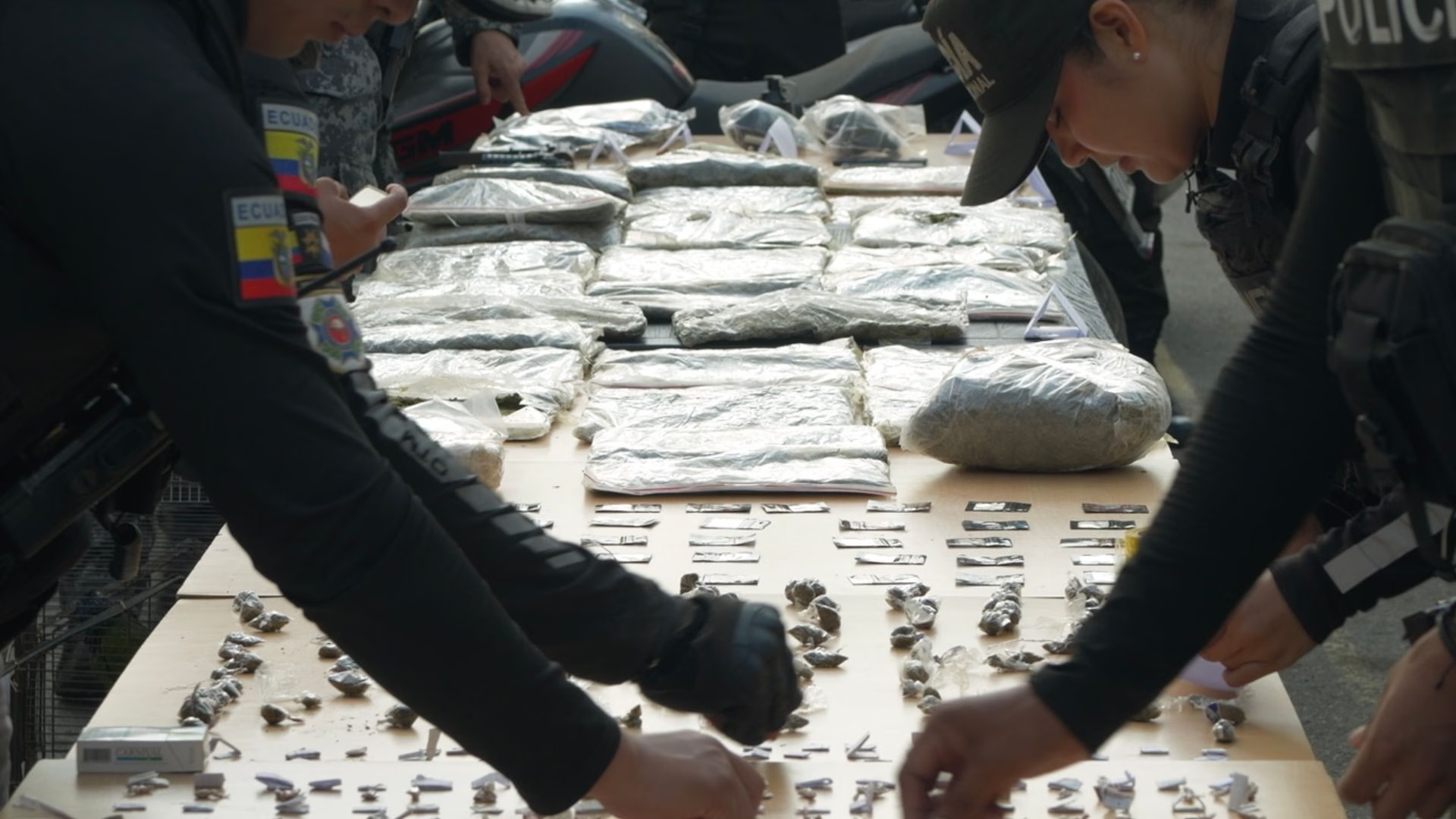
Islamabad, Pakistan – An uneasy calm hangs over Pakistan-administered Kashmir as the region marked the fourth day of a complete shutdown on Thursday, with at least 15 people killed – including three police officers – during violent clashes between protesters and security forces.
Dozens more have been injured on both sides as the standoff continues.
- list 1 of 4Unrest in Pakistan-administered Kashmir: What’s behind the recent protests?
- list 2 of 4Pahalgam attack: A simple guide to the Kashmir conflict
- list 3 of 4‘Bloodiest day’: How Gen-Z protest wave hit India’s Ladakh, killing four
- list 4 of 4Yasin Malik, Kashmir’s best-known separatist, an Indian intelligence asset?
end of list
The federal government has dispatched a negotiating committee that arrived on Thursday in Muzaffarabad, the territory’s capital, to hold crucial talks with the Jammu Kashmir Joint Awami Action Committee (JAAC), an umbrella organisation representing traders and civil society groups that has emerged as the voice of grassroots discontent across the region.
Led by activist Shaukat Nawaz Mir, the JAAC-organised lockdown commenced on September 29 and has brought several districts of Pakistan-administered Kashmir – locally known as Azad Jammu and Kashmir (AJK) – to a grinding halt.
The government, on its part, has meanwhile imposed a complete communications blackout, with residents cut off from mobile telecommunications and internet access since September 28.
In Muzaffarabad, the usually bustling markets have remained shuttered, while street vendors and public transport have vanished from the roads. The paralysis has left the region’s roughly four million residents in a state of uncertainty.
The government said in a statement that authorities were working to restore order and urged the public not to be swayed by what officials described as propaganda and “fake news” circulating on social media as part of a “specific agenda”.
Advertisement
This JAAC-led protest – the third such major mobilisation in the past two years – erupted after the government failed to agree to the committee’s 38-point demands, according to the group’s leaders.
The current crisis marks the latest escalation in a two-year confrontation between Pakistan-administered Kashmir’s local government and a grassroots movement that has shown its street power on several occasions.
What sparked the protests?
The Kashmir valley is the picturesque yet deeply contentious Himalayan region over which Pakistan and India have fought multiple wars since both nations gained independence from British colonial rule in 1947. Both control parts of it, with China also administering two slivers of the region’s north. The region is claimed in its entirety by India, while Pakistan claims all of Kashmir except the parts held by China, its ally.
With a population exceeding four million, according to the 2017 census, Pakistan-administered Kashmir operates under a semi-autonomous system with its own prime minister and legislative assembly.
The current unrest has roots in May 2023, when residents first took to the streets to protest against what they said were skyrocketing electricity bills. Simultaneously, complaints emerged about widespread flour smuggling and acute shortages in subsidised wheat supplies.
By August 2023, these disparate grievances had coalesced into organised resistance. In September of that year, hundreds of activists gathered in Muzaffarabad to formally establish the JAAC, bringing together representatives from all districts of the region.
The movement reached its first major flashpoint in May 2024, when protesters launched a long march towards Muzaffarabad. Violent clashes ensued, resulting in the deaths of at least five people, including a police officer.
The violent protests were suspended only after Pakistan Prime Minister Shehbaz Sharif agreed to key demands to slash flour prices and reduce electricity tariffs, with the government allocating billions of rupees in subsidies to make flour affordable and support electricity price reductions.
However, the peace proved short-lived. In August of this year, the JAAC announced it would launch another lockdown, this time broadening its critique beyond economic grievances.

Why are protesters dissatisfied, and what are their demands?
The latest charter of demands presented by the JAAC consists of 38 distinct points. The demands range from providing free education and healthcare facilities and launching major infrastructure projects to changing the structure of the provincial legislature.
Advertisement
But topping the list is the abolition of what the JAAC characterises as “ruling elite privileges”, a demand that has featured prominently in previous sets of grievances as well.
The JAAC maintains that following the May 2024 protests, the government acknowledged that a judicial commission would be formed to review “privileges granted to high government officials”.
Some of the perks provided to senior government officials, such as ministers, include two government-provided vehicles, personal staff including bodyguards, as well as unlimited fuel for vehicles they use for government work.
A second key demand, incorporated into the JAAC’s list for the first time, involves ending the system of 12 reserved seats for refugees in the autonomous region’s legislative assembly.
According to the JAAC, refugees and their descendants, who migrated from Indian-administered Kashmir after the 1947 partition, now constitute a powerful political bloc that has monopolised development funds.
The charter also demands the withdrawal of legal cases filed against activists during the protests that erupted in 2023 and 2024.
Demands also include tax exemptions and improved employment opportunities, among others.
Infrastructure development features prominently in the JAAC’s vision. The committee has demanded new projects, including tunnels and bridges connecting the mountainous region with the rest of Pakistan, apart from an international airport.
Muzaffarabad currently has an airport that has remained nonoperational for years. However, in April of this year, Prime Minister Sharif formed a committee to work on reviving the project. He also issued instructions to examine the feasibility of the development of another airport in Mirpur, the second-largest city in the region.
How is the government responding?
The local administration has implemented a communications blackout and has ordered educational institutions shut indefinitely.
More controversially, it has called for paramilitary forces as well as additional police contingents from the rest of Pakistan.
The JAAC has objected to the deployment of paramilitary forces. Mir, the JAAC leader, told reporters earlier this week that with local police already present, “there was no need to order paramilitary from mainland Pakistan”.
Abdul Majid Khan, the finance minister of Pakistan-administered Kashmir, acknowledged that while there had already been a first round of negotiations, a new committee had now arrived in Muzaffarabad specifically tasked with addressing the protesters’ grievances.
“Initially, when they launched their protest last year, it was all about electricity and flour price, and we agreed on those. But they also must understand that things cannot happen overnight, and they take time,” Khan said, defending the government.
However, Khan acknowledged that while the government has agreed to most of the JAAC’s 38 points, negotiations have reached a deadlock on two particularly contentious issues – the elimination of the 12 reserved seats for refugees and what the JAAC calls ending “ruling elite perks”.

The minister challenged the logic behind eliminating seats reserved for refugees, pointing to what they lost at the time of the subcontinent’s partition.
Advertisement
“These are the people whose families migrated from India, where they were landowners and businesspeople, but moved to Pakistan in abject poverty, having left their wealth behind, but JAAC thinks it is unjust to give them a quota of seats. If we don’t give these people the rights, then why did they even go through the trouble of moving here?” Khan argued.
The minister himself belongs to the estimated 2.7 million people in the region whose families migrated from Indian-administered Kashmir.
Khan also questioned the logic of renewed protests, given that the JAAC’s previous demands had largely been met. He said that for many of the current issues, local authorities must seek funding from the federal government in Islamabad.
“There is barely any taxation on the people here, with already reduced electricity tariffs. Additionally, we have less than 5,000 tax filers in the entire region, which shows little revenue generation for the government,” he said.
What happens next?
Thursday’s negotiations between government representatives and JAAC members concluded without any resolution, with the next round of talks expected on Friday.
Both sides publicly profess their commitment to dialogue, but distrust runs deep after repeated cycles of promises and disappointments.
Despite the JAAC’s persistent protests, the government maintains it has met most demands and that constitutional and electoral reforms require legislative processes that cannot happen overnight.
Khan indicated that once there is meaningful progress in negotiations, the government will move quickly to restore internet and mobile services, which he said “had to be curtailed due to the situation on the ground”.
“With the negotiation team being present in Muzaffarabad, I am sure there will be a solution to this deadlock, and things will return to normalcy soon,” Khan said.
British Caribbean News


